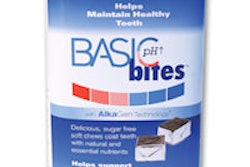Spanish researchers have confirmed the effectiveness of a spray containing 1% malic acid, which improves xerostomia caused by antidepressant drugs, according to a study in Depression and Anxiety (February 2013, Vol. 30:2, pp. 137-142).
The product, combined with xylitol and fluorides in a spray format, stimulates saliva production in patients with xerostomia, improving their quality of life, according to the researchers from the University of Granada.
One of the main causes of xerostomia stems from taking medications. More than 500 drugs, belonging to 42 pharmacological groups, can cause xerostomia as a side effect, the researchers noted. Most of the drugs are antidepressants. Since the drugs have been prescribed more in recent years, it has resulted in more patients developing xerostomia, especially among 45- to 50-year-old people.
The researchers performed a double-blind randomized clinical trial on 70 patients diagnosed with antidepressant-induced xerostomia, split into two groups. The first group (n = 35) took a sialogogue mouth spray (1% malic acid), while the second group (n = 35) received a placebo. Both products were applied on demand over two weeks.
Dry mouth symptoms improved after 1% malic acid topical spray application (p < 0.05), the study authors reported. After two weeks of 1% malic acid application, unstimulated and stimulated salivary flows rates increased significantly (p < 0.05), they added.
Previous studies have described citric and malic acid as salivary stimulants, although for years their use was rejected due to the possible demineralizing effect on tooth enamel, the researchers noted. However, recent research has shown a reduction in the potential demineralizing effect of malic acid when used in the correct concentration and when combined with xylitol and fluorides.



















